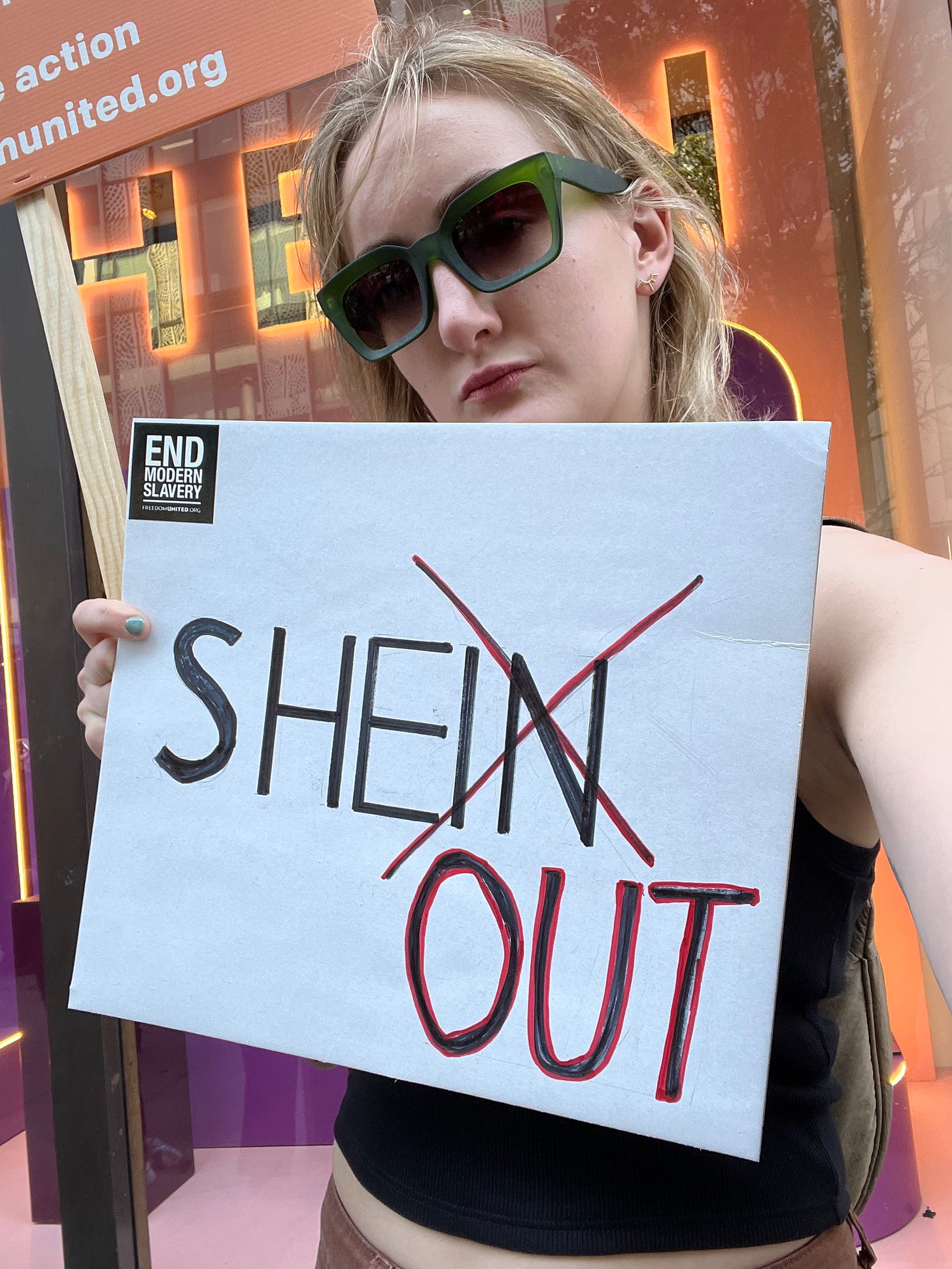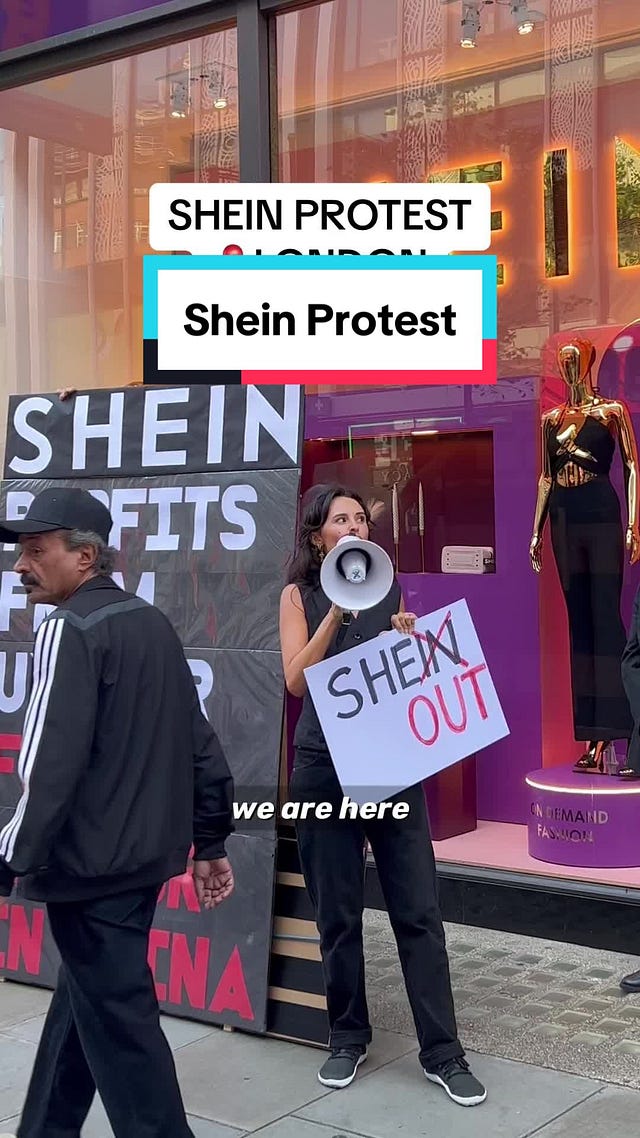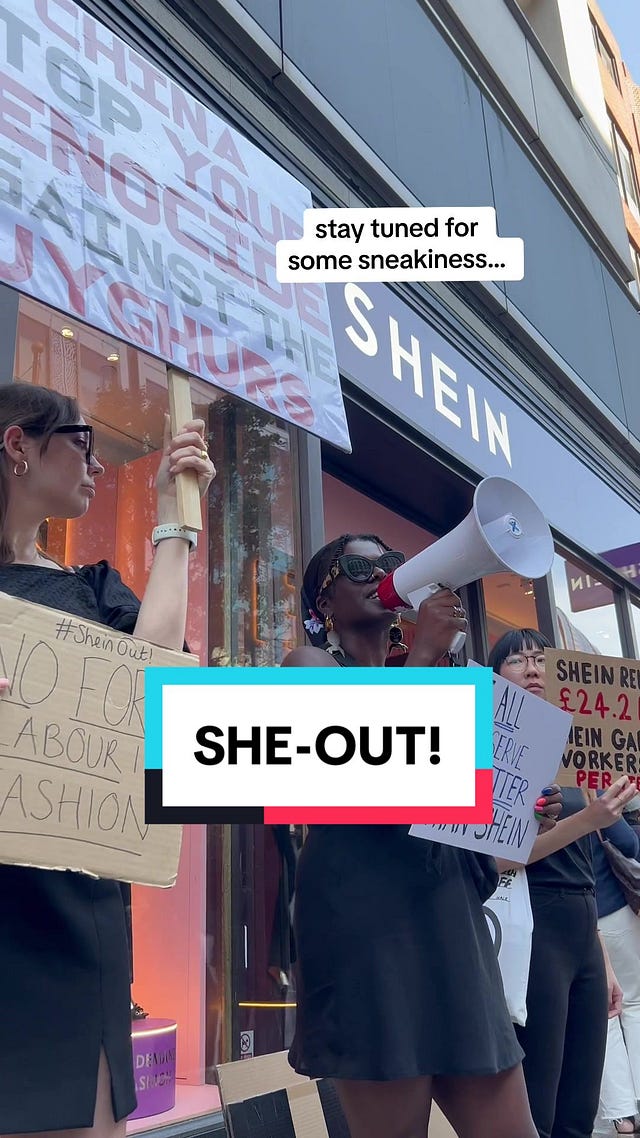[all opinions expressed are my own]
Be Human. Be Well. Be Planet.
This is the vision for the impact agenda of Lululemon, the seventh largest fashion brand and fourth largest sportswear brand (by market cap), and arguably the most popular yoga brand in the world, if the logos on the back of people’s leggings in most classes I attend are anything to go by.
Unfortunately, but not surprisingly if you’re familiar with Big Fashion’s greenwashing tactics, Lululemon’s carbon footprint soared 22% last year and their ever-growing product range is 62% plastic, despite lofty sustainability promises and a cult-like community obsessed with ‘wellness’. I’m personally a bit obsessed with debunking the wellness industry (Maintenance Phase podcast is a great place to start), and for me, the main problem with wellness or ‘self care’ marketed through products is that its all about the individual. Not the community, not the environment, not the people with whose hands the industry produces its ‘solutions’ to an unwell society.
As my friend Emma Håkansson writes in her brilliant new book Total Ethics Fashion:
“…the wellbeing of the planet and all those who live here must be prioritised before profit or production.”
So if Lululemon was really set up for humans and the planet to ‘be well’, would selling 80% nylon, 20% elastane (aka ‘Nulu™ fabric’) leggings dripping with forever chemicals be the best human- and planet-saving strategy?
Beyond the usual STOP BUYING STUFF BRANDS TELL YOU IS NECESSARY FOR ANY GIVEN ACTIVITY (in this case, you don’t need ‘weightless’ leggings and fancy asymmetric sports bras to do a downward dog), the deeper problem here is that the principles of yoga, upon which Lululemon has made its billions, explicitly nurture ahimsa or non-violence. The exploitative, wasteful and toxic business model of fast fashion is violence. And I think deep down, the yoga studios, teachers and influencers endorsing Lululemon and similar brands through sponsored partnerships, ambassador programmes and affiliate marketing know this.
TikTok creator @sunainaleon makes a lot of great videos about this topic, calling out the so-called ‘yoga clothing industry’ for its hypocrisy and urging people to do their research before buying, or even better, just buy less. This is part of a much wider conversation about cultural appropriation in yoga (including corporate appropriation), which yoga teacher Angie Tiwari also talks about extensively.
None of this is to say that you shouldn’t buy and wear clothing that makes you feel confident and comfortable in a yoga class. I understand how amazing it can feel to wear something that really supports your movement. Hence why I practice mostly in clothing from Girlfriend Collective, Organic Basics, Carrot Banana Peach, Yogi Bare and second hand Nike/Adidas. I just think that those of who regularly do yoga, not just as a form of exercise through asana practice, but who understand its underlying philosophy, might benefit from some critical thinking about the companies we share our money with, and how we might be able to use our voice to demand better for people and the planet. In the meantime, showing up to your next yoga class in a raggedy old t-shirt could be a fun little act of fast fashion rebellion.
I am a yoga teacher now! If you’re in Edinburgh, you can join me for yoga classes at OMH Therapies in the West End on Thursday evenings and Sunday mornings from 22nd October - 10th December. Newsletter subscribers can use code FREECLASS1 for your first class free (£10 thereafter). Book here :)
Thank you for reading this month’s newsletter! Also thank you to the people who said that they’d be willing to pay a couple of quid for an subscriber version of Threadbare! I’m thinking about starting this in the new year with an extra newsletter and mini-podcast episode each month for paying subscribers, so keep an eye out for that if you’re keen.
In the meantime, here are some videos from the Shein pop-up protest I joined in London last month from Venetia la Manna, and please check out Labour Behind the Label to get involved in more UK fast fashion actions like this one.









Love this post Ruth. Vuori are also doing interesting things in the activewear space with less impactful fabrics